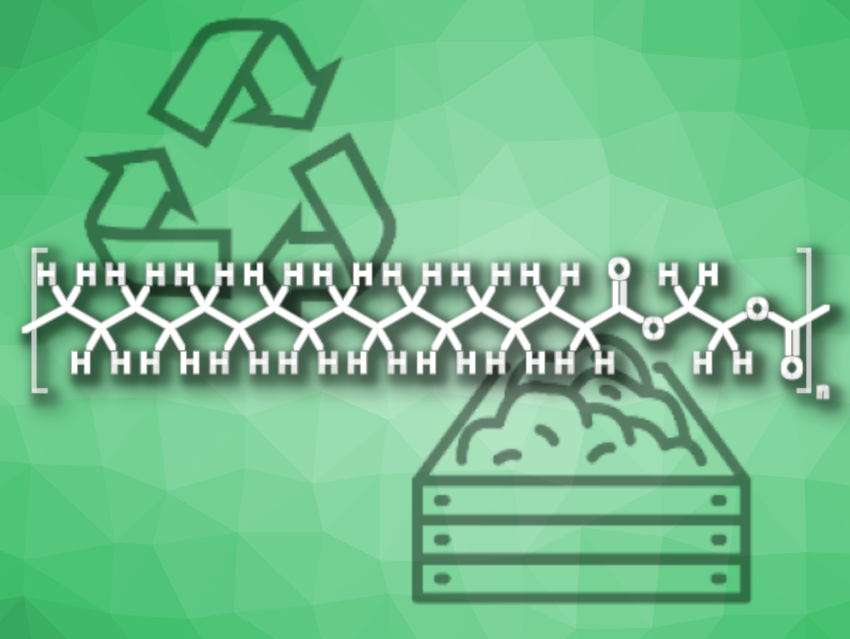The accumulation of persistent plastic waste is a pressing environmental problem. In addition to a circular plastics economy, where plastics are reused and recycled, biodegradable alternatives to conventional plastics could be useful tools to tackle this problem.
Stefan Mecking, University of Konstanz, Germany, and colleagues have developed a biodegradable alternative to high-density polyethylene (HDPE), which is a plastic used extensively worldwide. The researchers used dibutyltin oxide to catalyze a polycondensation of renewable 1,18-dimethyl octadecanedioate with different α,ω-diols, generating a range of polymers. Among them, the novel polyester-2,18 (pictured) is particularly promising because it is crystalline, hydrophobic, and has a high melting point (Tm = 96 °C). It was obtained from 1,18-octadecanedicarboxylic acid and ethylene glycol.

The degradability of polyester-2,18 stems from the low density of ester groups that are incorporated into its polyethylene chain. The ester groups are accessible to naturally occurring enzymes and can be completely hydrolyzed by them. Under industrial composting conditions, the material is over 95 % biodegraded within two months. The developed plastics possess the properties of traditional polyolefins while being completely biodegradable, according to the researchers.
- Biodegradable high density polyethylene‐like material,
Marcel Eck, Simon Timm Schwab, Taylor Frederick Nelson, Katrin Wurst, Steffen Iberl, David Schleheck, Christoph Link, Glauco Battagliarin, Stefan Mecking,
Angew. Chem. Int. Ed. 2022.
https://doi.org/10.1002/anie.202213438



